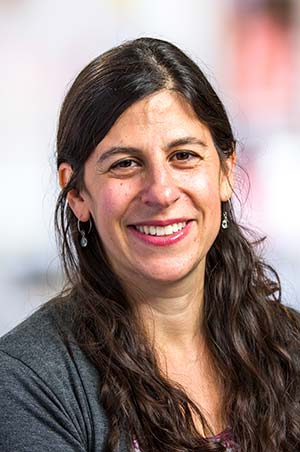Rachel B. Salit, MD
Associate Professor
Clinical Research Division, Fred Hutch
Dr. Rachel Salit is a hematologist and oncologist, and member of the stem cell transplant faculty at Fred Hutch who focuses on improving stem cell transplant outcomes for patients who have myeloproliferative diseases. She is developing new ways to facilitate engraftment and prevent graft-vs.-host disease in patients with myelofibrosis and other myeloproliferative neoplasms. She also has an interest in improving patients’ return-to-work journey following stem cell transplant. To this end, she has developed return-to- work guidance for providers and is piloting a return-to-work support intervention.
Dr. Salit has authored multiple manuscripts in peer-reviewed journals about stem cell transplant, myelofibrosis and late-effects following stem cell transplant. Her goal is to improve outcomes for stem cell transplant patients with myelofibrosis. She has given local, national and international talks and has been featured on podcasts on the topics of stem cell transplant for myelofibrosis and returning-to-work following transplant.
Other Appointments & Affiliations
Affiliate Investigator, Translational Science and Therapeutics Division, Fred HutchAffiliate Investigator
Translational Science and Therapeutics Division, Fred Hutch
Associate Professor
University of Washington School of Medicine
Education
Fellowship in Hematology/Oncology, National Institutes of Health, National Cancer Institute, 2010
Residency in Internal Medicine, University of Maryland Medical Center, 2007
MD, Loyola University Stritch School of Medicine, 2004
BS, Psychology, Magna Cum Laude, Duke University, 1996
Clinical Expertise
Sees myelofibrosis patients for stem cell transplant consults; cares for patients with benign and malignant hematologic diseases undergoing stem cell transplant; staffs Long-Term Follow-Up Clinic seeing survivors who have chronic graft-vs.-host disease and other long-term transplant related complications.
Current Projects
Two protocols open for patients with myelofibrosis who are either considering or know they want to pursue stem cell transplant. The trials use JAK-inhibitors, a class of drug known to decrease symptoms and splenomegaly in patients with myelofibrosis to improve patients’ pre-transplant symptoms and performance status and decrease graft-vs.-host disease.
Opening a pilot intervention study to support post-transplant patients who wish to return to work post-transplant.
